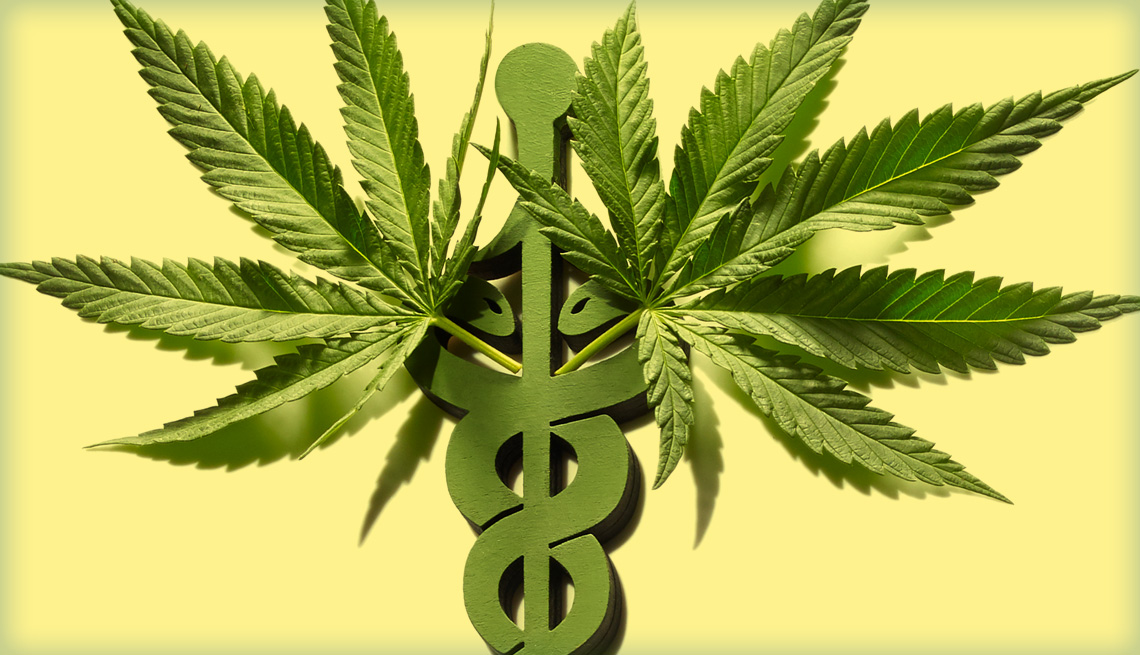Play all audios:
That hasn’t stopped some users — especially older adults — from approaching their doctors. “My patients want to talk about it,” Lum says. “But I’m in an information vacuum. We don’t have
many clinical studies to show effectiveness. Medical schools, pharmacy schools and nursing schools haven’t taught it. It’s not in the pharmacy database we use for prescribing, so I don’t
have a lot of information about potential drug interactions and side effects.” A few institutions have declined to embrace its use. The Cleveland Clinic announced it would not recommend
medical marijuana to its patients when it became legal to buy in Ohio in January. Says Paul Terpeluk, a doctor of osteopathic medicine and medical director of the Cleveland Clinic’s Employee
Health Services, “We’re just beginning to understand the effects of cannabinoids in the body. We do not believe states should be in the business of regulating and promoting medications.”
But other doctors prefer not to create obstacles to medical marijuana use. Peter Grinspoon, a primary care physician at Massachusetts General Hospital and a Harvard Medical School
instructor, took the unusual step of getting trained so he could certify his patients as medical marijuana users. “I grew up with this, so it’s hard not seeing it as medicine,” Grinspoon
explains. His father, the Harvard psychiatrist Lester Grinspoon, is considered the “grandfather of medical marijuana” and wrote a book about the history and cultural use of medical marijuana
in the 1970s; there’s even a marijuana strain in Europe named after him. His brother used marijuana while battling leukemia, too. “It makes sense to try cannabis when you consider the track
record of other medications a lot of older adults take, especially for pain, sleep and anxiety,” Grinspoon says. “Nonsteroidal anti-inflammatories like ibuprofen and naproxen can affect
your kidneys, threaten your heart and cause gastrointestinal bleeding. Few people want to be on opiates — they haven’t proven to work well for long-term relief, you get constipated and they
can be addictive. Sleep and anxiety drugs can leave you sedated and may affect memory. Cannabis can be as effective as anything.” Even nursing homes are experiencing a profound shift toward
acceptance. One program at the Hebrew Home in Riverdale, New York, allows residents to use cannabis capsules or cannabis oil drops and has found that it eases pain, improves appetite and
even reduced one resident’s opioid use. The program stays compliant with federal rules by having residents buy and administer cannabis themselves or with the help of a caregiver who’s not on
the home’s staff. “The benefits are nothing short of amazing and should be more widely available to residents of long-term care facilities,” says Daniel Reingold, the CEO of RiverSpring
Health, which operates the Hebrew Home. The nursing home is now leading a group of nonprofit long-term care facilities in several states planning to launch a large study this fall of medical
marijuana’s effects in older adults. (Note: The purchase of medical marijuana from a dispensary is not covered by the U.S. Department of Veterans Affairs, Medicare, Medicaid or private
insurance, though in some cases all may cover FDA-approved prescription drugs, such as Marinol, that are based on cannabis.) WHERE AARP STANDS In March, the AARP Board of Directors approved
a policy supporting the medical use of marijuana for older adults in states that have legalized it. The decision was based on the growing body of research suggesting marijuana may be helpful
in treating certain medical conditions and symptoms. The policy also notes that decisions related to the use of medical marijuana should be made between a patient and a health care provider
and appropriately balance clinical evidence of benefit and harm, the patient’s preferences and values, and any laws that may apply. According to the policy, “AARP also supports further
clinical research of medical use of cannabinoids to help alleviate both the symptoms of disease and the side effects of the treatment for diseases.” The policy adds that “AARP believes the
DEA’s [Drug Enforcement Administration] classification of marijuana as a Schedule I controlled substance deters the medical use and scientific study of cannabinoids” and calls on federal
officials to examine options to allow more clinical research.

